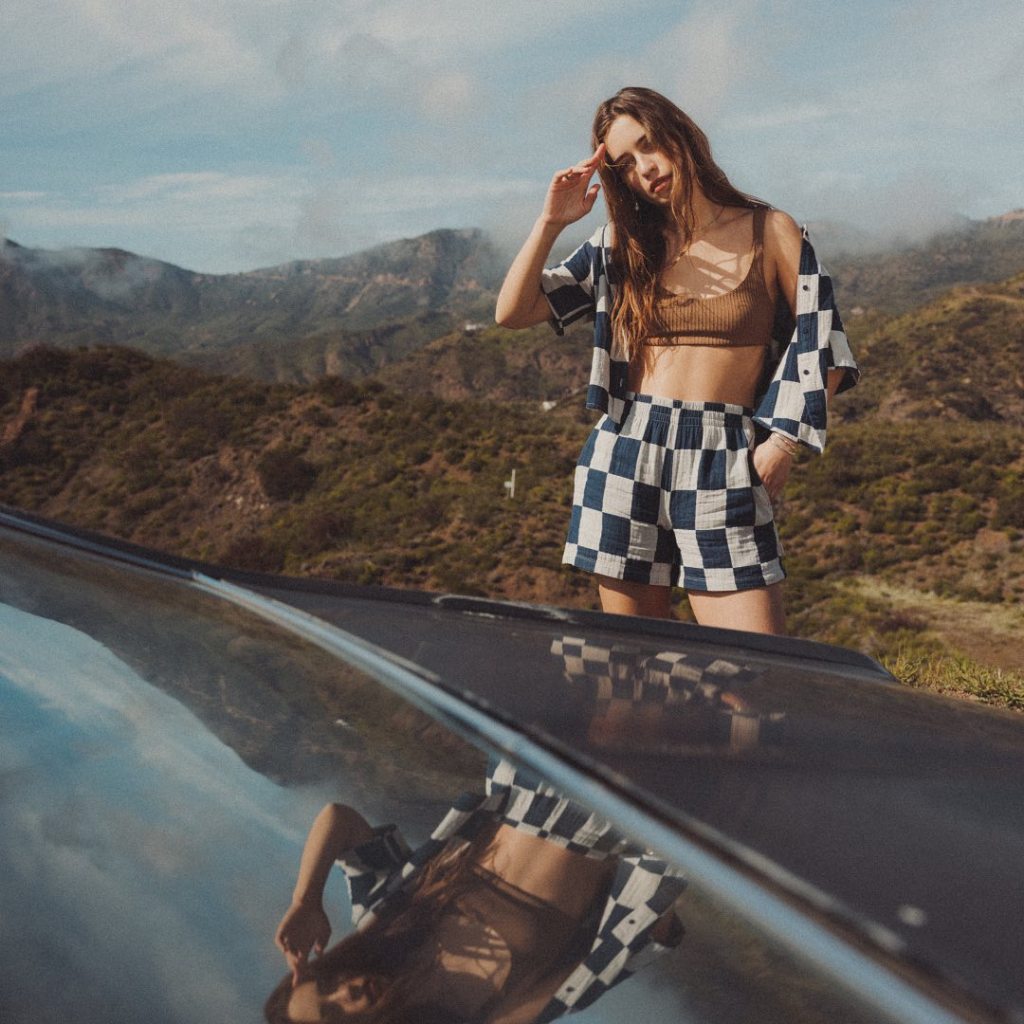The California fashion industry could be best described as casual classic based on a list of popular brands generated by ChatGPT.
It’s an industry made up of heritage labels, sustainable brands and lifestyle lines hailing from surf and skate.
Magazines once defined fashion trends and the next “it” brand. The web democratized that and social media became a new place for discovery. Growing interest in artificial intelligence now calls into question how the tech will come to define fashion and retail.
Vernon Proper used the AI-based chatbot ChatGPT to generate a list of the most popular California fashion brands. The results proved interesting and, while nowhere near exhaustive, offered a gauge for how this developing technology “sees” the local industry.
What follows is a list generated by ChatGPT. The order of the brands is per the chatbot, while the commentary that follows is from Vernon Proper editors.

1. Vans
AI said Vans is known for its “iconic skateboarding shoes and casual streetwear.”
The Costa Mesa-based brand has roots in skate, surf and Orange County. Over the decades it grew into the casual sneaker of choice for consumers far beyond surf and skate. Vans has worked hard to make inroads among musicians, artists, snowboarding, fashion and the outdoors.
Vans’ more recent performance has disappointed Wall Street. However, moves to turnaround the business are showing positive signs as the brand gets back to its roots.

2. Levi’s
One can’t talk about California fashion labels without talking denim.
While San Francisco-based Levi’s isn’t headquartered in the denim capital of the world – Los Angeles – it’s perhaps the label with the greatest reach here and abroad making its inclusion in this list appropriate.

3. Stussy
Stussy is an interesting choice given the plethora of California streetwear labels, including Diamond Supply, Huf, The Hundreds, Born x Raised, Babylon and on.
AI may have picked up on the Irvine-based company’s careful distribution strategy and longevity. The chatbot called Stussy an “iconic streetwear brand” with a “significant impact on the street fashion scene.”
The brand has managed to avoid many of the woes synonymous with growth by keeping a steady hand on distribution. A well edited selection of retailers and a handful of Stussy-branded stores carry the line.

4. Reformation
Reformation started in 2009 with dresses made from deadstock and environmentally-friendly fabrics sold direct-to-consumer. The brand was part of a budding group of born-online brands selling and communicating directly to their end-consumer.
Today, Reformation has a factory in Vernon, where it’s based, and a wholesale business that includes Nordstrom and Saks Fifth Avenue.

5. Brandy Melville
Brandy Melville is a Los Angeles-based company started by Silvio Marsan and his son Stephan Marsan.
The teen and 20-something label sells mostly casual basics in its stores and other retailers, including Pacsun.
It makes one size in the styles it sells and continues to be a favorite among teens.
The brand ranked No. 9 among the top apparel brands across all teens in Piper Sandler’s semi-annual “Taking Stock with Teens” survey released in April. Among female teenagers, Brandy Melville ranked No. 6.
6. Patagonia
Patagonia co-founder Yvon Chouinard has long said he doesn’t consider himself a businessman. The Ventura-based brand Chouinard started with his wife has instead viewed itself as an entity that uses business to address environmental issues.

7. RVCA
RVCA, started by Pat Tenore, has long served as the darling of the Billabong, and now Boardriders, brand portfolios.
The Costa Mesa label sits in an interesting spot within the market. It straddles surf, skate, art and music. RVCA‘s growth potential has also been for its parent companies (first Billabong International and then Boardriders when the former was bought by the latter) a bright spot in their businesses.

8. Ugg
Goleta-based Ugg is one of the largest businesses in parent Deckers Outdoor’s portfolio, alongside sister brand Hoka.
Ugg generated net sales of $1.93 billion for the fiscal year ended March 31 and continues to innovate. More recent collaborations have helped build its relevance in fashion via brands such as Palace Skateboards, The Elder Statesman and Madhappy.

9. Fear of God
Fear of God is the only luxury brand to make this AI-generated list and for good reason.
The downtown Los Angeles label started by Jerry Lorenzo turned heads with its first-ever fashion show in April at the Hollywood Bowl. Lorenzo also has a deal with Adidas that makes him head of the brand’s basketball division.

10. Brixton
Brixton started in 2004 as part of a group of budding brands from the worlds of surf, skate and snow. It’s evolved to a position well beyond the surf shop with its art and music influences. Brixton’s men’s and women’s collections are a modern take on California-inspired fashion, giving it a more elevated proposition than some of its direct competitors.









Be First to Comment